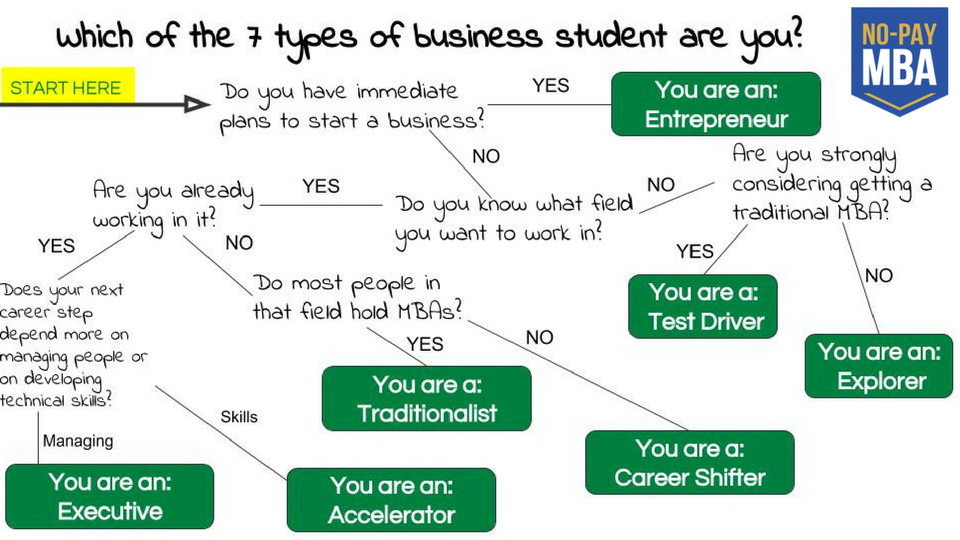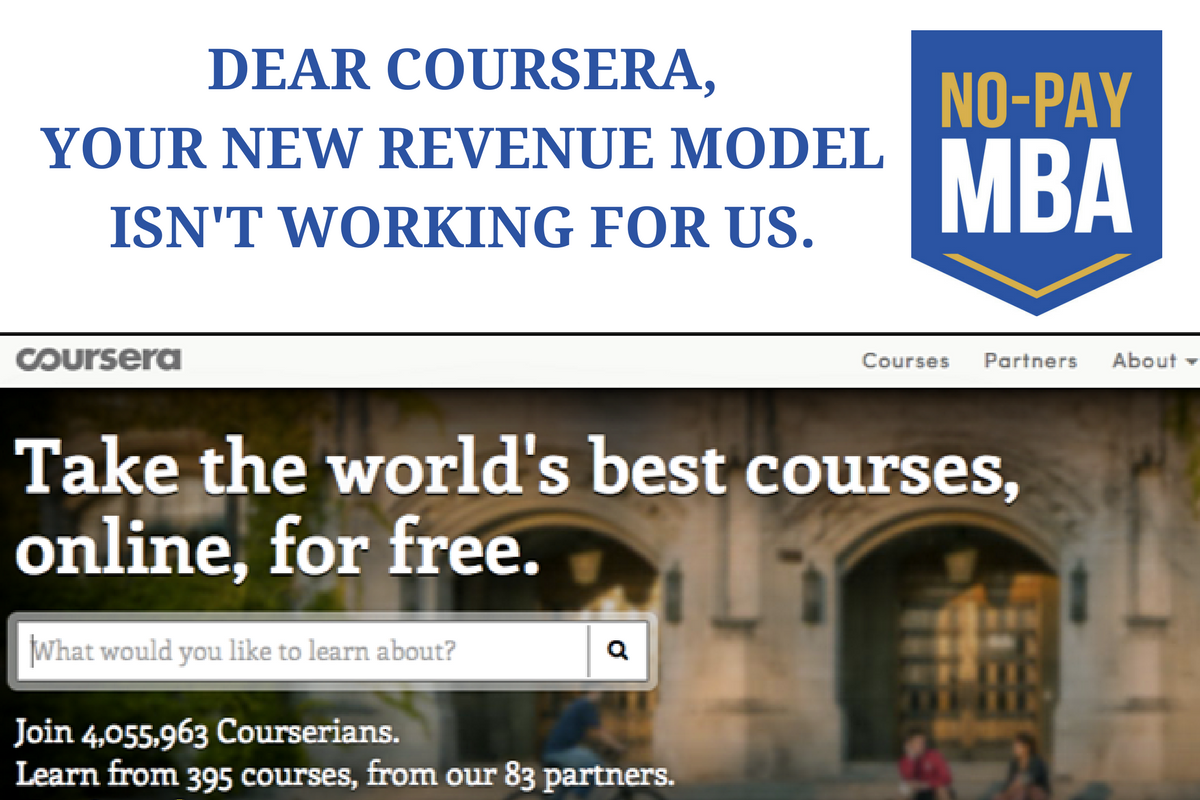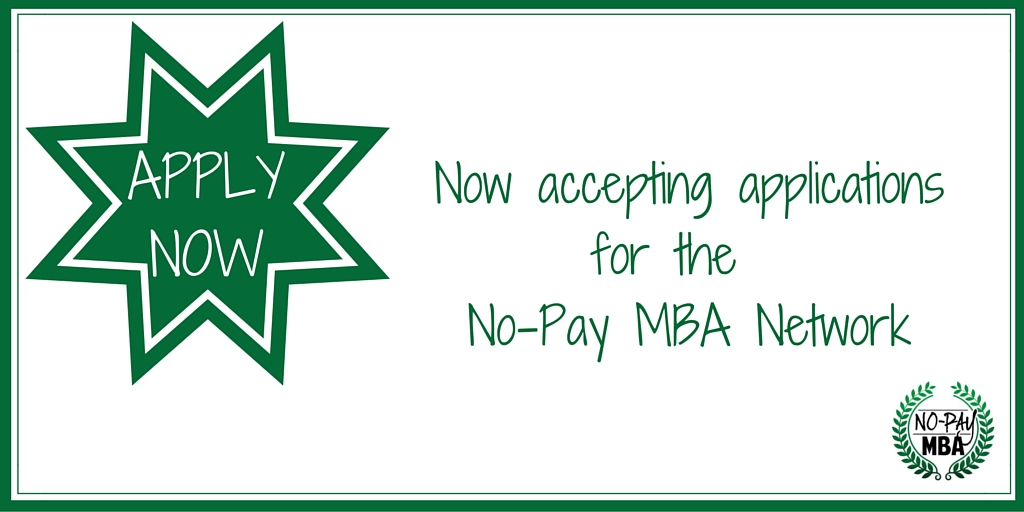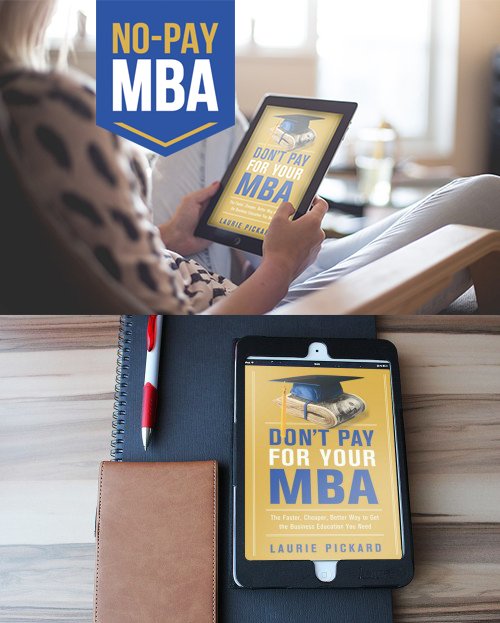Studying Business Online? Your Credential Options
If you’re looking for affordable business education and credentials to show your skills, you may want to consider these options.

First published May 17, 2015. Last updated November 10, 2016. This post contains affiliate links.
I first published a version of this post just after the University of Illinois at Urbana-Champaign released their entire MBA program through Coursera and announced that you could earn a bona fide MBA degree from them via MOOC. Students would still need to go through the regular admissions process and be accepted to the business school, and they would pay $20,000 for verified certificates and other fees, but this was (and remains) the first full MBA available 100% through MOOCs.
Since then, we’ve continued to see a proliferation of new business credentials that you can earn through online study, ranging from certificates for single courses to U-IL’s iMBA, with a lot of new options in between. While most of these credentials don’t enjoy the same level of recognition as a full-scale MBA, there is reason to believe that some form of credentialing could be valuable in the job search. And at a price many thousands of dollars less than a traditional MBA, the cost-to-value of these new credentials has the potential to be quite high.
Here is a rundown of the current options for both degree and non-degree credentials when studying business online, in ascending order of cost.
The Smartly MBA
Cost: $0
One of the newest and potentially most disruptive credentials out there is the Smartly MBA. This highly selective program admits just a few top performers (as demonstrated by prior work and educational experience) to earn an accelerated MBA in just 4 months. Content is delivered through an interactive app. While this is not a MOOC-based option, some of Smartly’s content is available to the public. Which is a good thing because only a small portion of those who are excited about Smartly’s free (though as yet non accredited) degree program will actually make it through the admissions process.
Coursera Specializations
Cost: $200 - $600
When I first published this post, Coursera’s Specializations were new, and there weren’t very many of them. Now, you can find dozens of multi-course series on Coursera, typically consisting of 4-6 courses and a capstone project. The topics have gotten more specialized as well, including not just general business subjects such as financial management and entrepreneurship but also niche topics such as construction management and culture-driven team building.
Coursera has also recently introduced a new subscription-based payment model (something I suggested a while back, though at a higher price than I proposed) for certain Specializations, with fees ranging from $39 to $89 per month. This might make some courses cheaper, though if you tend to procrastinate it could also make them more expensive. While the value of Specializations in the job market is still relatively unknown, recruiters do report that they are seeing MOOCs on candidates’ resumes and that they generally view them positively.
This might make some courses cheaper, though if you tend to procrastinate it could also make them more expensive.
edX MicroMasters
Cost: $600 - $1700
The newest credential on the block is the MicroMasters, offered through the edX MOOC platform. As its name suggests, a MicroMasters involves master’s level coursework, but in a shorter, more condensed program. The first MicroMasters was created by MIT in the field of Supply Chain Management. The new crop of MicroMasters includes programs in Project Management, International Business Management, and User Experience Design, as well as non-business fields. The big advantage of the MicroMasters is that they shares a direct linkage with traditional master’s programs, allowing students who choose to do so to enter directly into a degree-granting program, with their MOOC coursework counting for credit towards the overall degree. Overall, the value to cost of a MicroMasters makes it a very promising option.
HBX CORe
Cost: $1950 - $3600
Harvard Business School’s Certificate of Readiness (CORe) is an interesting one. Harvard being Harvard, the business school has created its own platform, HBX, through which to deliver a small set of business courses. CORe is a sort of mini-MBA, covering just the foundations of an MBA program, designed for people with no previous business background. The big advantage of this program is the Harvard name.
There are a few attractive features of CORe. First, having a credential from Harvard, even if it isn’t a full degree, is bound to be worth something. If you can get the Harvard brand name onto your resume for $2000, even when other more affordable options are available (such as the Wharton Business Foundations Specialization), it might well be worth the price. Second, the HBX is more interactive than many of the MOOC platforms. It still operates on cohorts, and it has an admissions process. Admitted students are invested in the program and the level of engagement is high, which translates to added networking benefits. Finally, HBX also offers an option to take CORe for credit. The price of the for-credit option is double, at $3600, but it could be a good option if you’re planning to do a full-scale MBA in the future.
Professional certifications
Cost: in the range of $2,000 - $5,000
Many professional business certifications are available online, most of them offered through professional associations. Organizations like the Project Management Institute, the Institute of Management Accountants, the Information Systems Audit and Control Association, and many others all offer professional certifications. The advantages of these professional certifications is that they are very specific, and many are very well-recognized within their industries. The disadvantages are that you typically need to already be a practicing professional in order to reap the benefits of the certification, or even to become certified. Being so specific, these narrow credentials aren’t as versatile as an MBA, but within their respective industries they can be just as valuable.
Accredited degrees from low-cost online universities
Cost: $10,000 - $15,000*
*(varies significantly depending on how long you take to finish and how much credit you transfer in)
Several online-only universities offer low-cost MBA programs targeted towards working professionals. These include Western Governors, Capella University, and Excelsior College. All of these institutions allow students to study online at their own pace. Western Governors is a competency-based program, meaning that degrees are conferred based on the completion of projects. The advantages of these programs are the flexibility, the cost, and the fact that you can earn an accredited degree. The disadvantages are that if you take longer than expected to finish, you may end up paying more. And even though the degrees are accredited, the reputations of these schools aren’t as strong as, say, the University of Illinois.
University of Illinois’s iMBA
Cost: $20,000
As mentioned above, the University of Illinois is the first business school to offer a degree based on MOOC coursework. The big advantages of this program are the significant savings over other online programs, the flexibility of the program, and the reputability of the final degree. Downsides? $20,000 is still a lot of money, you’ll have to go through the admissions process and be accepted to the program, and you might still be missing out on some of the in-person benefits of an MBA. Still, if you need the degree and can afford the tuition, this is a great option.
Online MBAs
Cost: $60,000 to $100,000
Most of us are familiar with online MBA programs. Many universities offer online MBAs. The advantage of these programs is that they are just as well-recognized in the job market as brick-and-mortar MBAs. The downside is that the cost is equivalent – and sometimes greater – than what you would spend on a traditional, on-campus MBA program.











